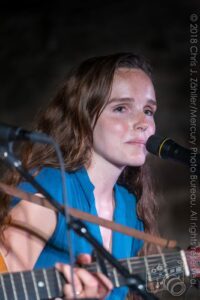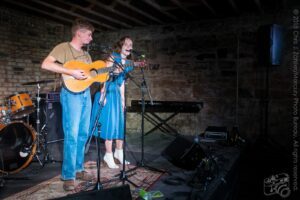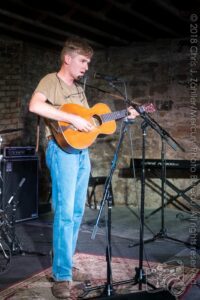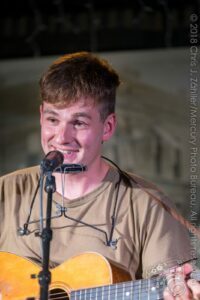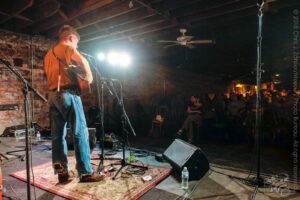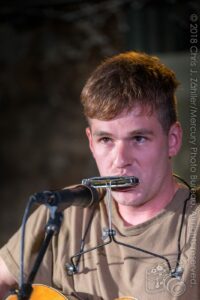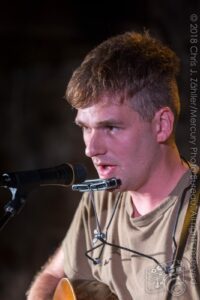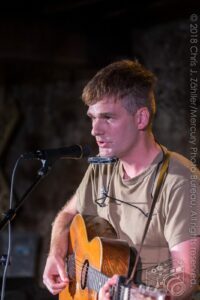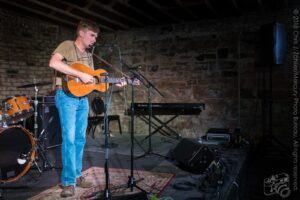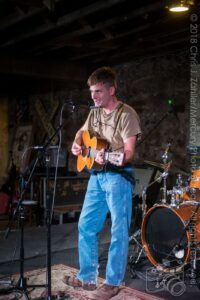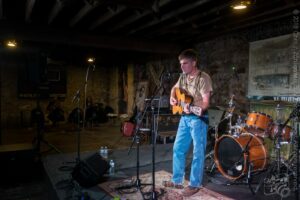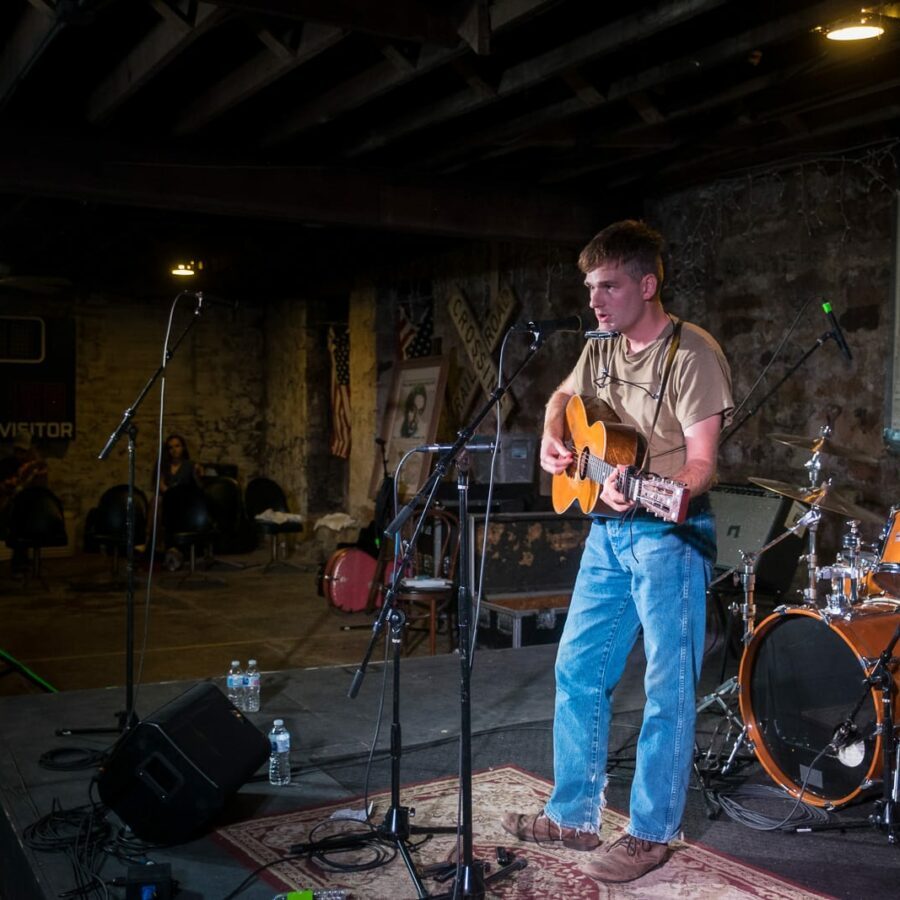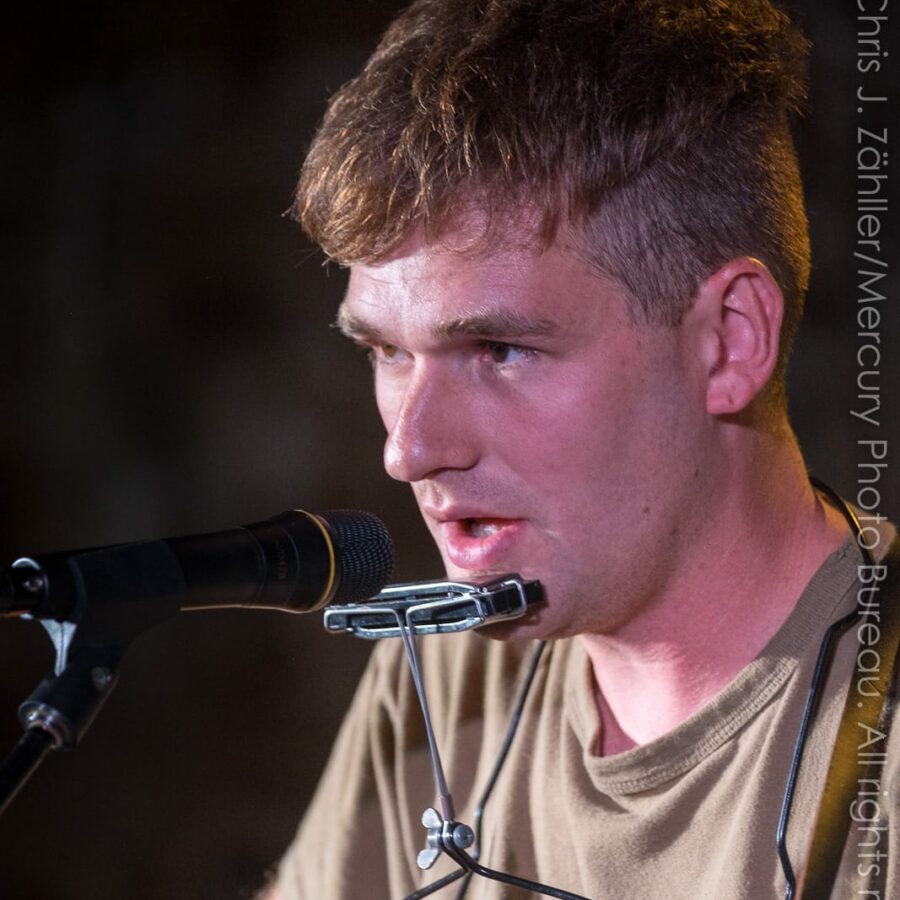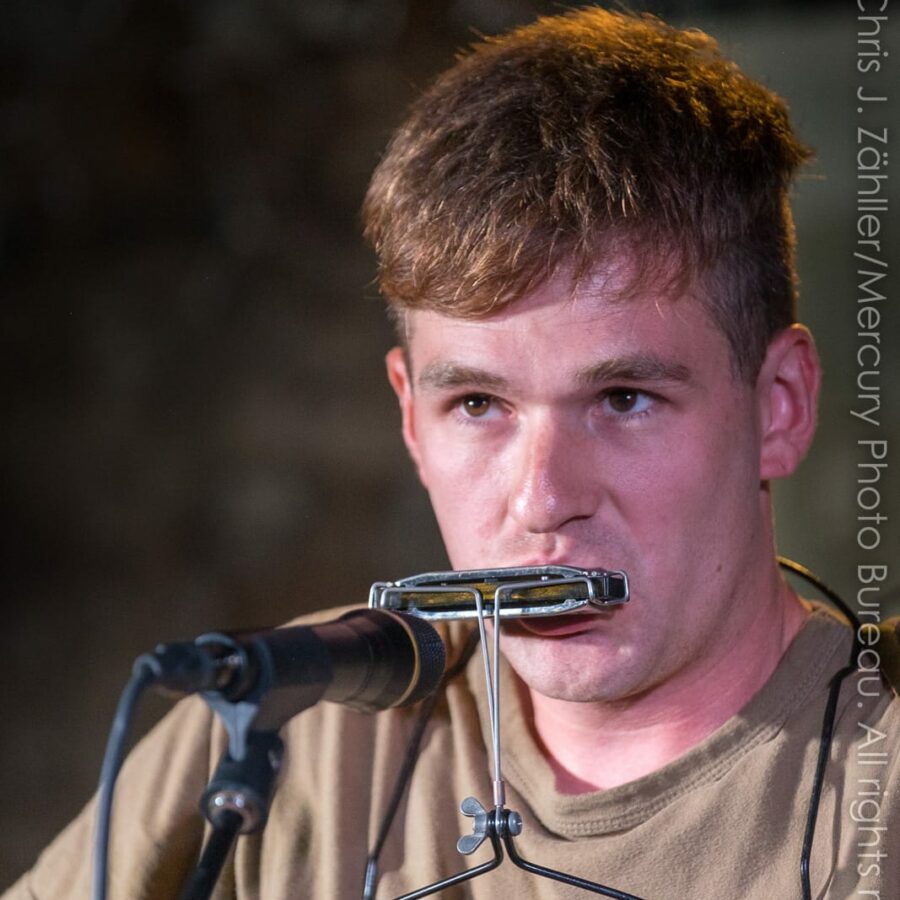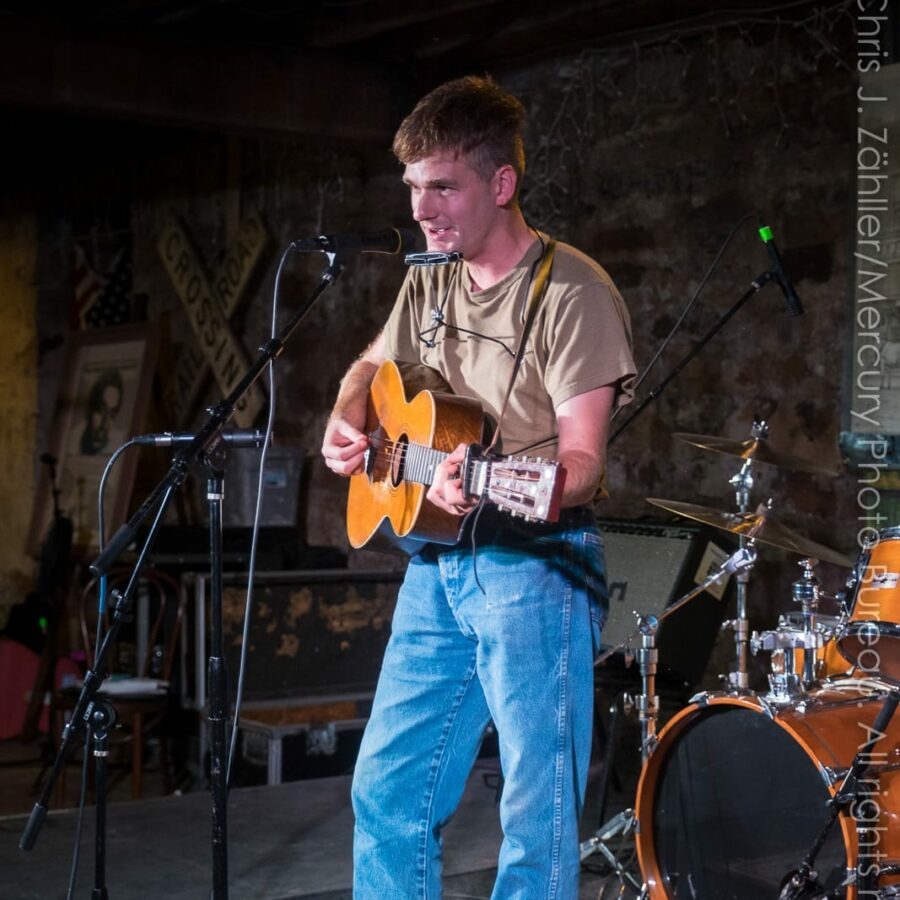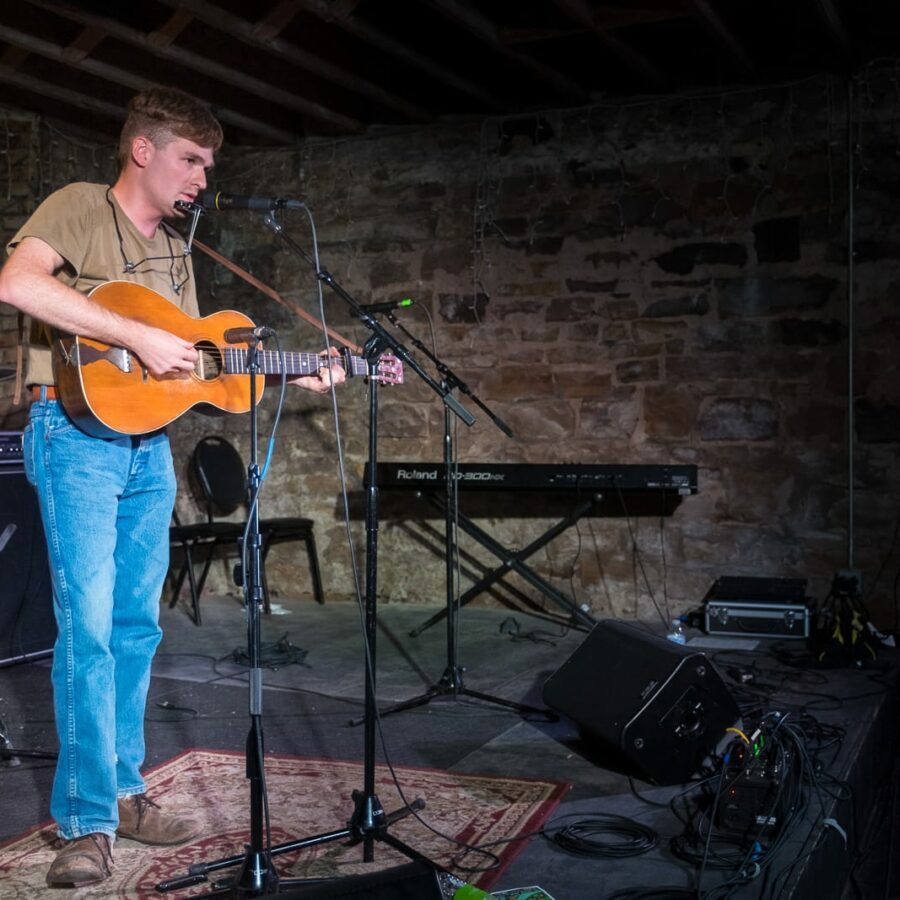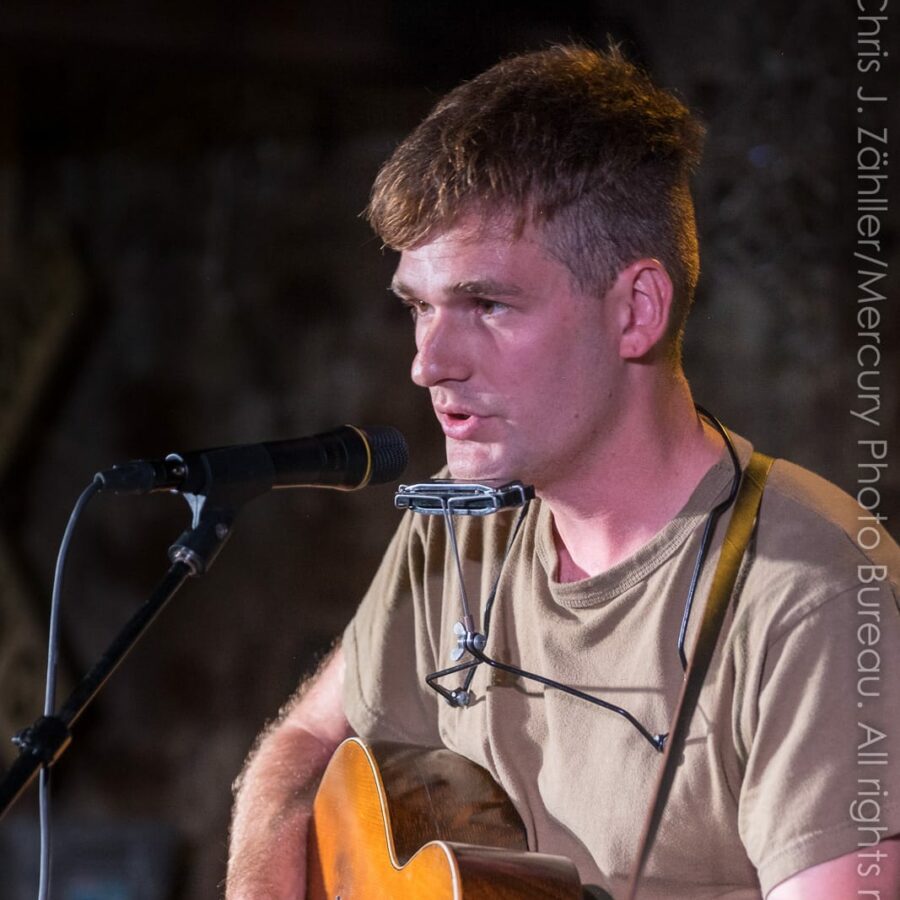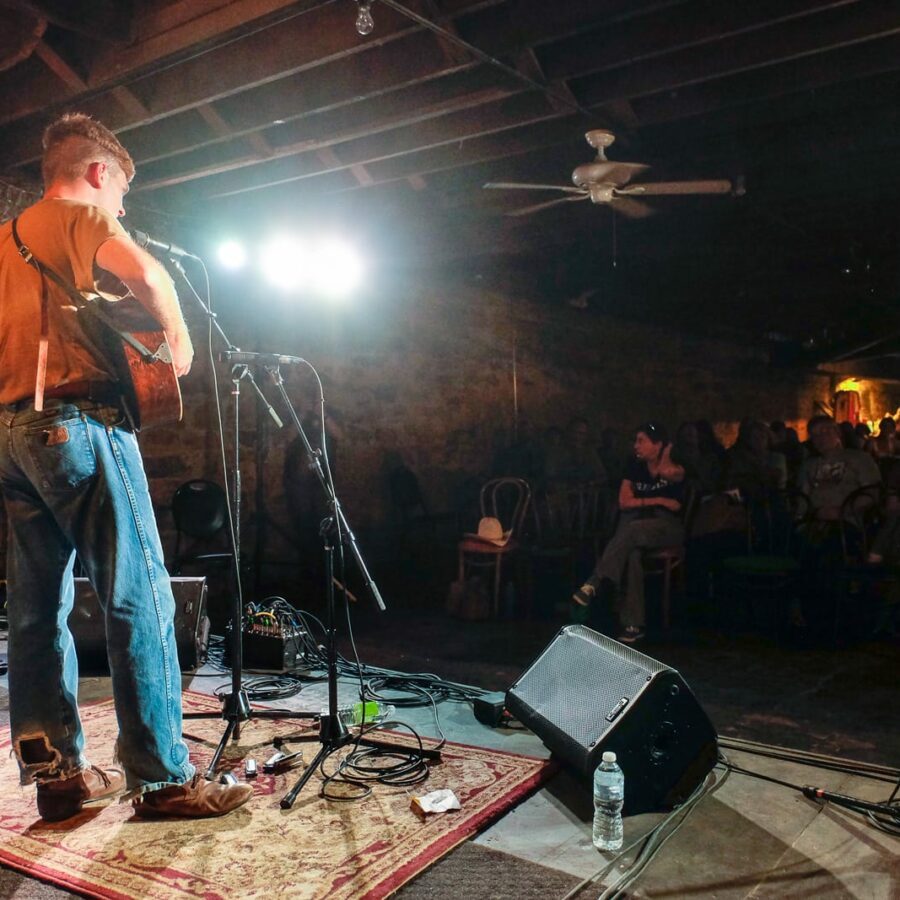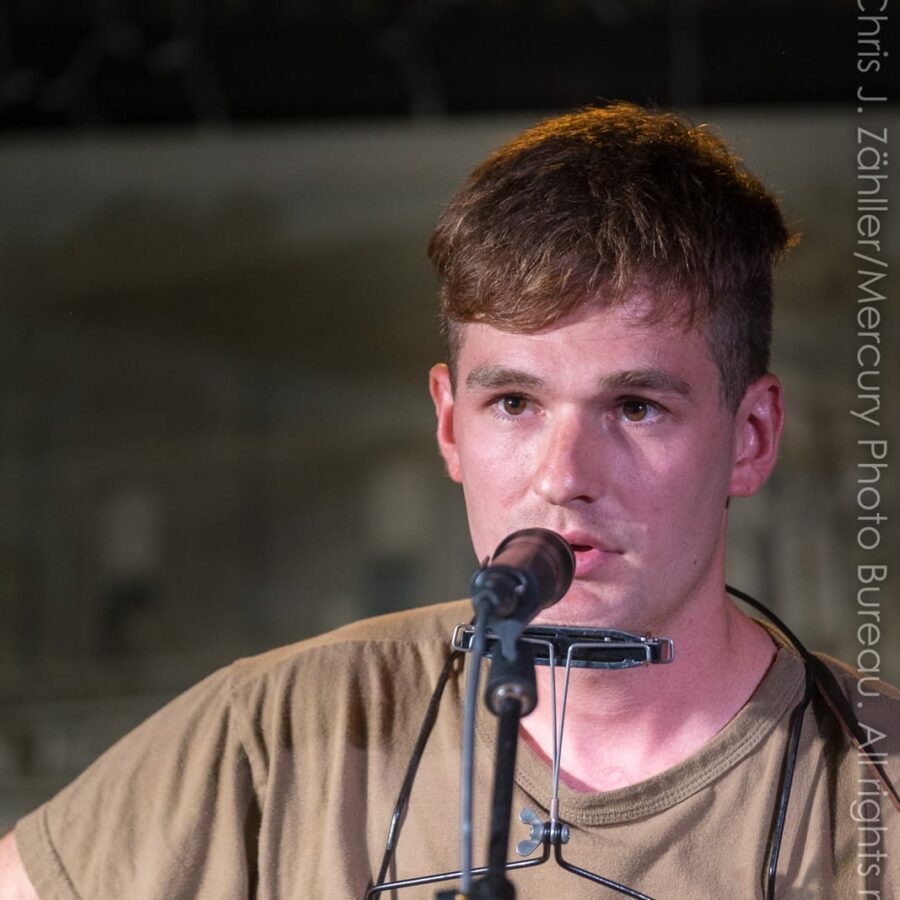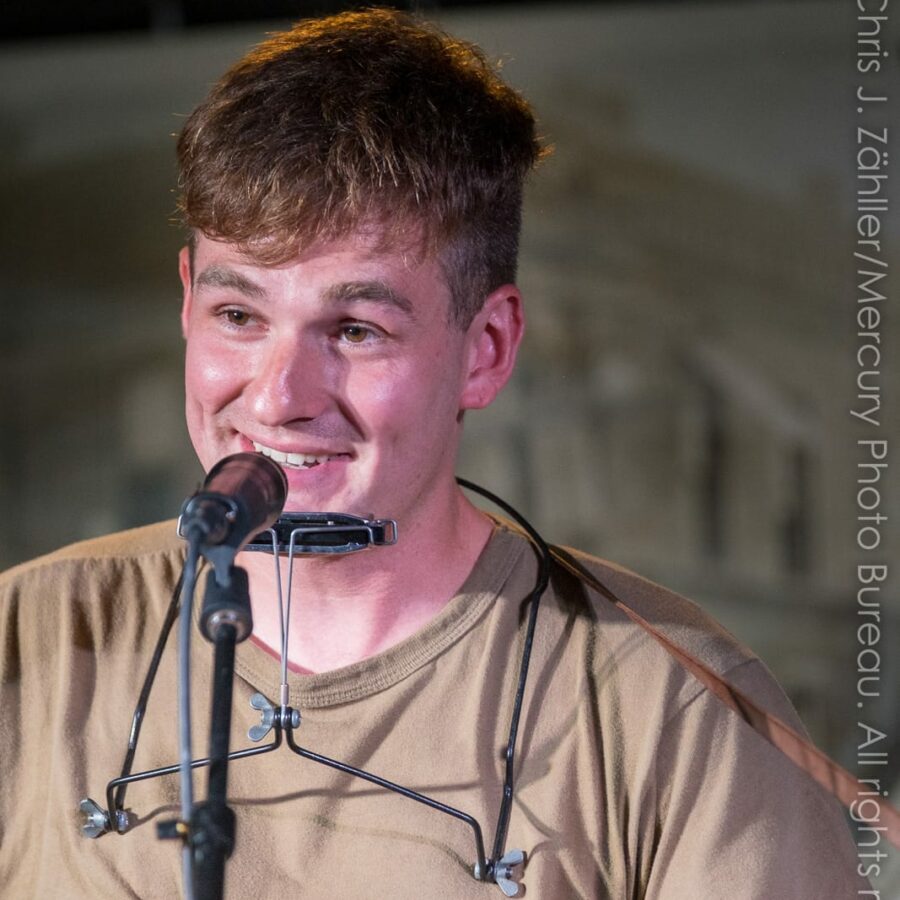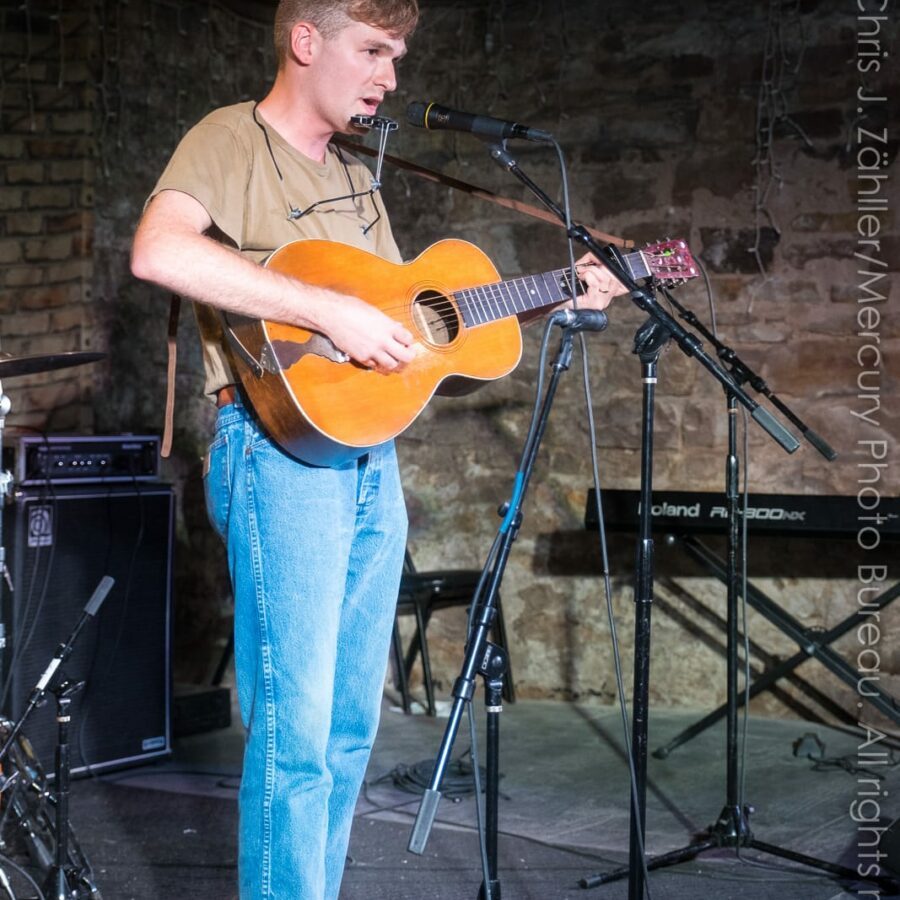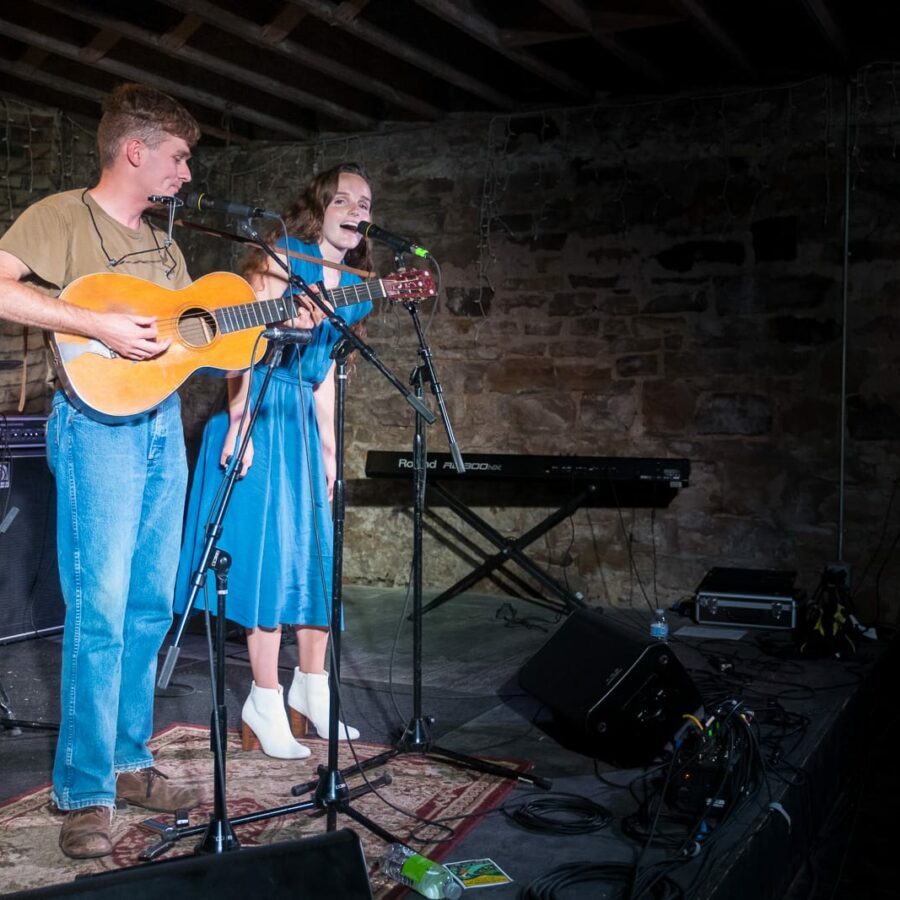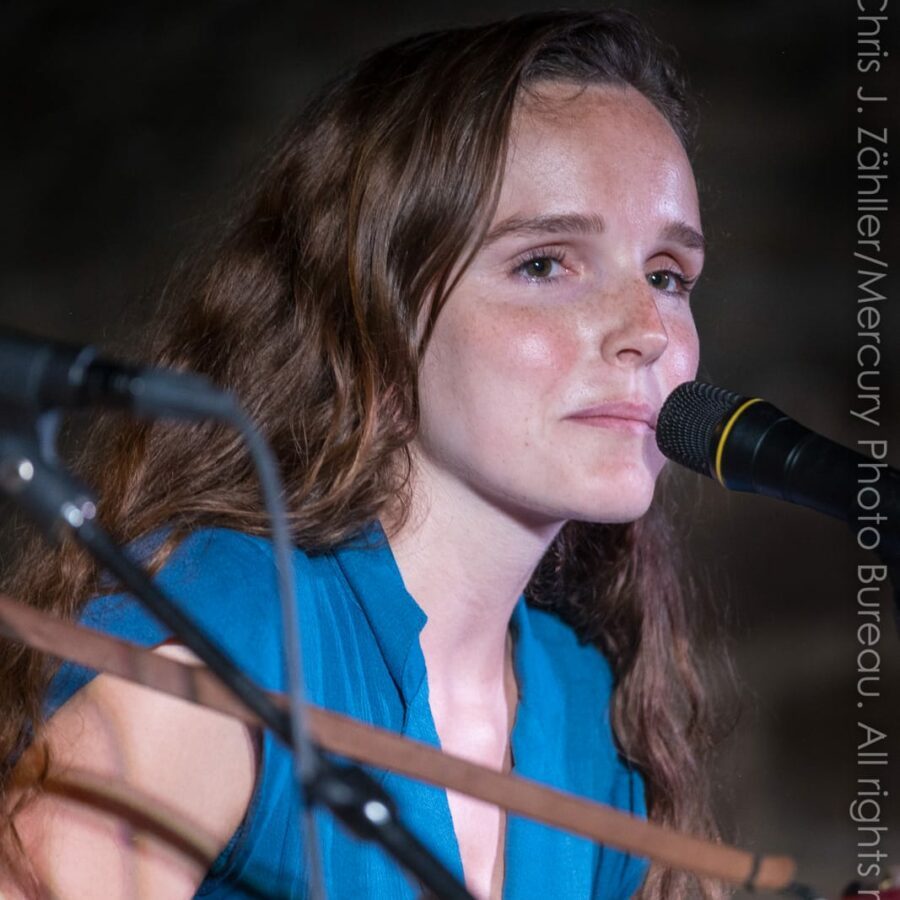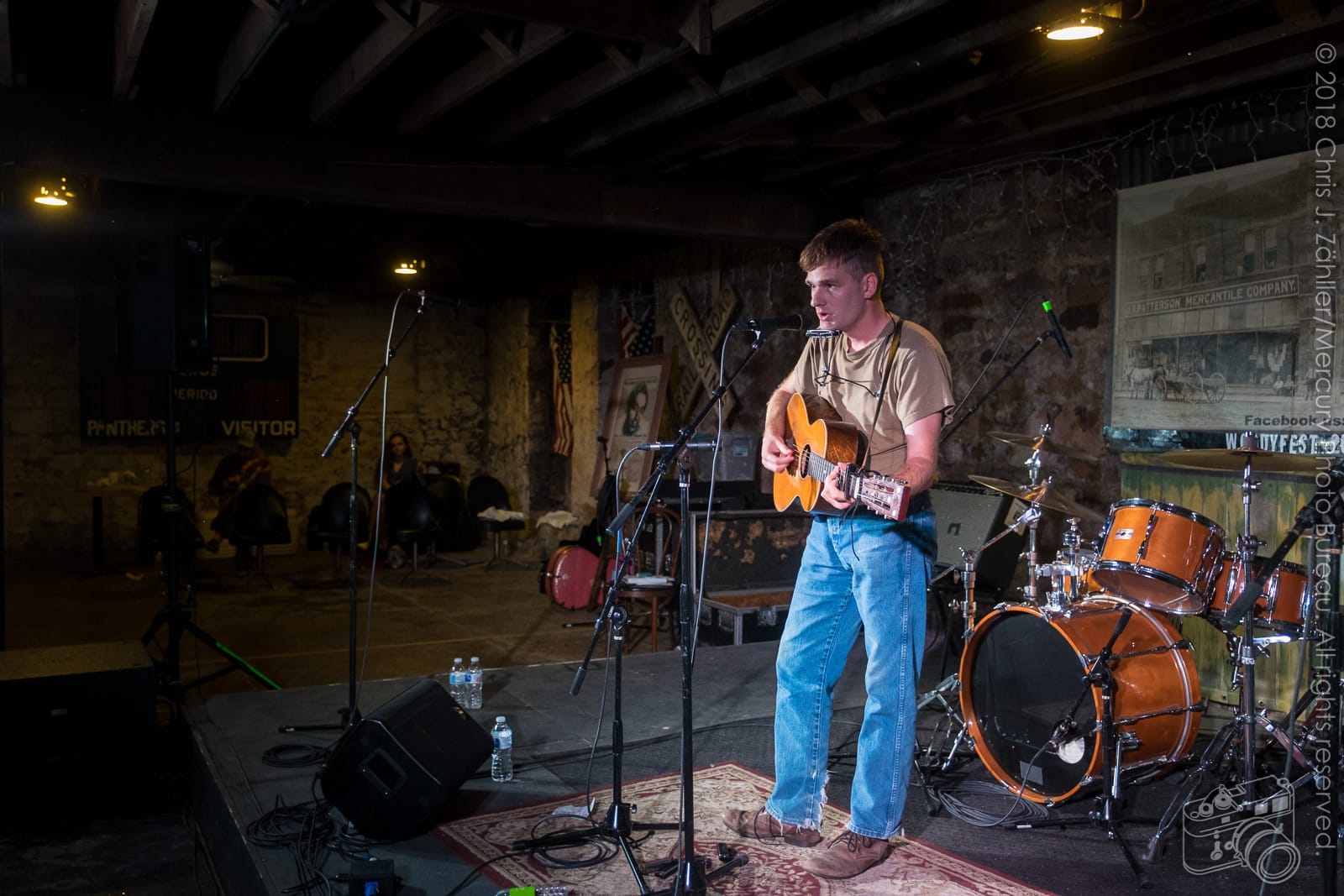
Woodyfest 2018: Josh Okeefe
A Student of Struggle
Derby Native and Music School Dropout a Rising Star
At first glance, [Sidenote: We examine Derby, England native Josh Okeefe’s music in part twenty-eight of our Woodyfest 2018 coverage.] one could be forgiven for dismissing twenty-five-year-old singer-songwriter Josh Okeefe as a mere pasticheur. An internet image search reveals his penchant for dressing like a certain Robert Zimmerman (a.k.a. Bob Dylan), [Sidenote: A young Jewish college student from Duluth, Minnesota, Zimmerman famously changed his name around .] particularly from that period when Dylan was imitating Okie Woody Guthrie. The “Huck Finn” cap Okeefe sometimes sports is a near replica of the one Dylan wore on the cover of his eponymous debut.
Slight of frame and piercing-eyed, Okeefe bears a striking resemblace to both men in their youths. Until recently he wore his hair in loose curls, much like young Dylan. His Guthrie-by-way-of-early-Dylan vocal timbre and phrasing seem further evidence of slavish imitation. Cementing the impression, he’s even written a Woodyesque “talking blues” number. [Sidenote: Mason Williams, another famous Okie musician, adapted this form for his Them Poems; Okeefe is hardly the first to imitate Woody’s talking blues.]
One could be forgiven, but one would still be wrong. The trouble with such a superficial analysis is that it ignores Okeefe’s incisive lyricism. “Terence Crutcher,” ostensibly about the unarmed black motorist killed in by a Tulsa police officer after his car broke down, maintains the American Folk tradition of giving voice to the voiceless, expressing rage and despair on the part of the powerless. More broadly it questions how implicit bias affects perception. Was Crutcher a big, bad dude,
a line repeated throughout the song, or just a big, black dude,
the transformed phrase the song ends with?
She was booked for first-degree manslaugher
/ But when do the chains finally break? / It’s been ninety-five years since 1921 / How many more is it gonna take? The world saw the lynching postcard
/ It’s a different kind of noose / Was he sentenced to death for bein’ big and bad / Or for bein’ a big, black dude?
His scant catalogue (he’s released one EP and one long-player, but says he’s recorded over 300 songs [Sidenote: Dingwall, Ed, “Milford Musician Launches Debut Album from Nashville,” Belper News ().] ) ranges from love songs to celebrations of his old Derbyshire football [Sidenote: “Soccer” to us Yanks.] mates to protest songs. An accidental cover of Johnny and June’s “Jackson” has become one of his most popular tunes in live performance, sung as a duet with his partner Cora Carpenter. Carpenter, an angelic hillbilly, kick-you-in-your-shins type,
[Sidenote: Okeefe, quoted in Graham, Carol, “Josh Okeefe — Don’t Let This Gem Pass You By,” No Depression ().] also sang with Okeefe on the recording.
We [had] sung that song a million times together on stage but we were not supposed to record that song. Cora had joined me for a recording session and we had planned to do a few takes of another song of mine together as a duet. But when the tape started rollin’ I just started playing “Jackson.” Nearly burst out laughing halfway through the song but we managed to hold it in and finish the take!
[Sidenote: Ibid.]
Originally hailing from Derby, England, [Sidenote: Derby (pronounced /ˈdɑːrbi/; rhymes with “car bee”) is located near England’s geographic center. By the this market town was one of the Industrial Revolution’s birthplaces. By the , it was the center of the British rail industry. A working-class place of cobblestone streets and grey buildings, Derby might understandably be mistaken for one of its northern industrial neighbors.] Okeefe attended the British & Irish Modern Music Institute before dropping out to follow his musical heroes’ trail (literally and figuratively). The trail led the nineteen-year-old musician to Nashville, musical home to a pair of his idols, Hank Williams and Johnny Cash. It was there he recorded his EP, which hit the number fifteen spot on the iTunes Top 100 Country Albums chart. [Sidenote: Cobley, Mike, “England Native & Folk-Singer Josh Okeefe Found His Muse in Nashville & Delivers Results @ Komedia Brighton,” The Brighton Magazine ().]
His next release was recorded in his log cabin with a borrowed vintage microphone and a 2-track tape recorder he purchased from Okie J. J. Cale’s estate. [Sidenote: Ibid.]
Okeefe hasn’t gone unnoticed. He’s opened for Rufus Wainwright, Kris Kristofferson, and Alison Krauss. [Sidenote: Anonymous staff writer, “Josh Okeefe Special Guest for Kris Kristofferson 82nd Birthday Concert,” Music-News.com ().] [Sidenote: Anonymous staff writer, “From Brighton to Nashville, Introducing Josh Okeefe,” BIMM News Archive ().] He’s penned a song for Danish DJ duo TooManyLeftHands, “Too Young to Die.” The song won a Danish Music Award and went on become an International Federation of the Phonographic Industry Gold Record. [Sidenote: Ibid.] [Sidenote: Dingwall.] It’s nuts, going from hearing the song in a small room – when I was writing it – to hearing 70,000 people sing the song back at a huge festival.
[Sidenote: Okeefe, quoted in “From Brighton to Nashville.”]
His Woodyfest set was decidely quieter, but no less enthusiastically received. He was one of this writer’s favorite new festival artists. From conversation with other festival attendees and organizers I believe that opinion is nearly universal. Scuttlebutt has it, festival organizers want Okeefe for a return engagement. I can hardly wait.
Gallery: Josh Okeefe
Gallery
Okeefe played to a mid-sized crowd in the Brick Café basement on festival . His partner Cora Carpenter joined him for a spirited performance of “Jackson.”
